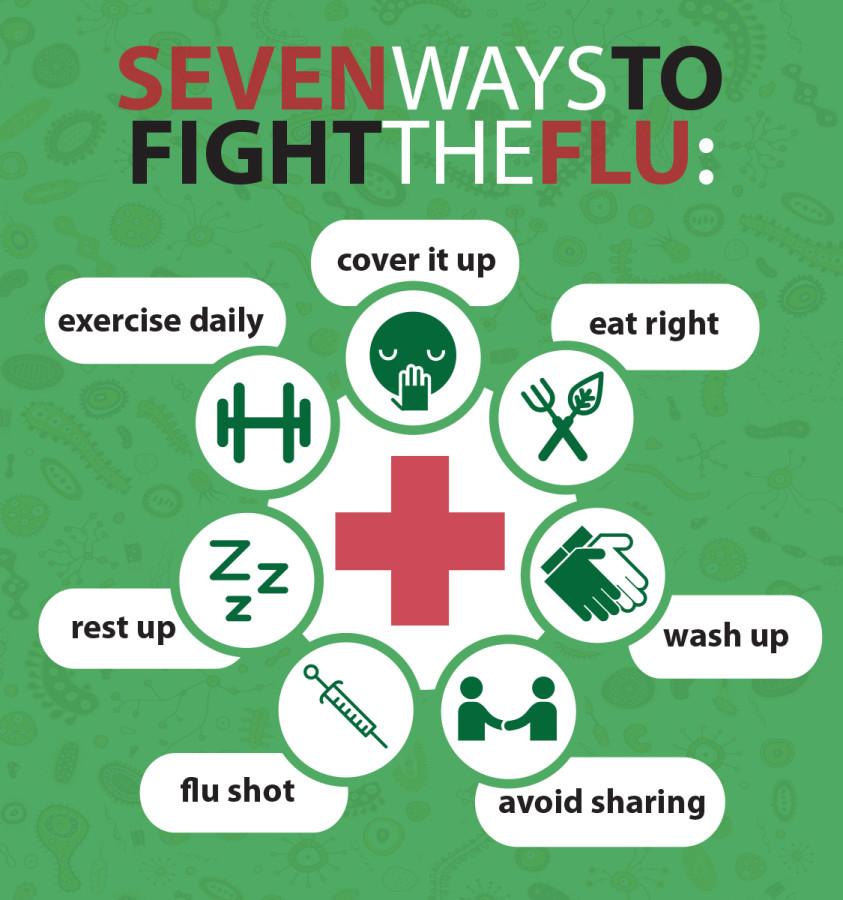Swine flu plagues Spokane
January 29, 2014
There have been recent increases in H1N1, also known as swine flu, and as this strain of the flu is more contagious than the common cold, students may be more susceptible to it during the beginning of winter quarter.
According to the Spokane Regional Health District, during the months of December and January the number of patients hospitalized for the flu increased by about 60-70 people in Spokane County. Also, the people who are most affected by the flu are between the ages of 50-64, followed by those between the ages of 18-49.
One precautionary step students can take to avoid getting the flu, according to Laurie Hays, EWU Health, Wellness and Prevention Program Coordinator, is to get a flu shot soon. “It takes about two weeks for the immune system to build up,” said Hays.
The Cheney Student Health still has shots available for students, as well as the Rockwood Clinic, and the flu shots are free to full-time Eastern students.
Some other tips to avoid getting sick, according to Hays, are washing your hands frequently, covering your mouth and nose when you sneeze or cough, not letting others use your towels or cup, trying to eat well balanced meals with lots of fruits and vegetables, aiming for 30 minutes of exercise 3-5 days a week and trying to get eight hours of sleep each night.
EWU Student Support and Advocacy Manager, Michelle Helmerick, knows it is hard to stay healthy during this time of the year. She is working with students and their professors to keep students at home when they are sick.
According to Helmerick, if a student has been advised by a healthcare provider to self-isolate, they can call the Dean of Students Office to seek help. The staff members there will contact the student’s professors and give them an absence notice and connect students with additional resources on campus to make sure their health needs are being met.
While this does not excuse the student from class, it does assure the professors that the student is actually sick, which may encourage the professor to work with the student.
For those students who have roommates who are sick, there is a “feel better friend meal” program supported by the EWU Dining Services on campus. All a student has to do is go to the dining hall, show the cashier their student ID and their friend’s student ID and ask for the “feel better friend meal.”
If a student should get sick, Hays would like to encourage them to self-isolate, rest and hydrate to avoid infecting others.
“All it takes is one bug,” said Hays.







![Simmons said the biggest reasons for her success this year were “God, hard work, and trusting [her] coach and what she has planned.”](https://theeasterner.org/wp-content/uploads/2024/05/image1-1-1200x800.jpg)


![Simmons said the biggest reasons for her success this year were “God, hard work, and trusting [her] coach and what she has planned.”](https://theeasterner.org/wp-content/uploads/2024/05/image1-1-600x400.jpg)






